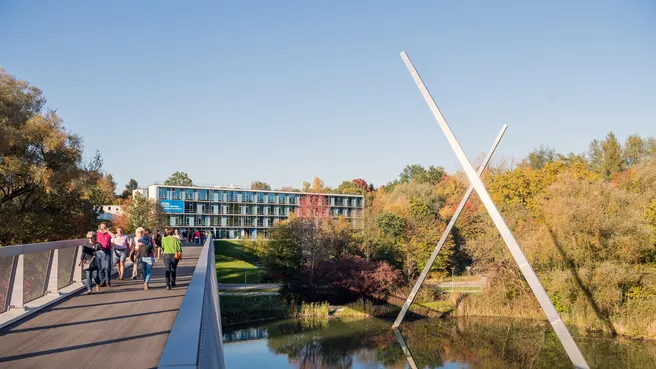The aim of the new center is to create a world-class agricultural science location based on an integrated agricultural campus, explained Blume. “To achieve this, we are combining three absolutely top institutions, preserving their strengths and at the same time creating something completely new.”
“I welcome the long-awaited decision on the future of the Weihenstephan Agricultural Campus,” explained Prof. Ingrid Kögel-Knabner, Dean of the TUM School of Life Sciences. “We at the School will do our utmost to support the planned establishment of an integrated agricultural center. I am absolutely positive about the future of agricultural sciences in Weihenstephan and am confident that the visibility of the location will be increased and that something unique worldwide can be created.”
TUM President Prof. Thomas F. Hofmann also commented on the planned agricultural center: “Based on the initiative of TUM, HSWT and LfL, the state government has presented a future-oriented model based on the work of the Sounding Board in order to bundle the respective strengths of the three partners and thus raise the agricultural sciences in Weihenstephan to the highest international level. We can build on numerous, intensive collaborations between the partners. In the context of fulfilling its teaching tasks, the Agricultural Center is considered a TUM institution.
TUM brings its successful profile in agricultural sciences to the Agricultural Center. At TUM, this profile is characterized on the one hand by its technical depth and, on the other hand, is strengthened by cooperation with the biological, nutritional and environmental sciences, engineering sciences and computer science as well as social sciences and economics. As a university of excellence, TUM uses its broad range of subjects to contribute to solving the major challenges facing agriculture with research findings and the training of specialists - such as the introduction of new digital technologies, coping with the consequences of climate change and new requirements for animal welfare and environmental protection.
This profile of the TUM complements the orientation of the HSWT as a university for applied science and the special profile of the LfL perfectly. We create added value, which is reflected in the even more intensive interlinking of basic and applied research through to agricultural system sciences and in excellently trained specialists for all areas of the agricultural sector.
In establishing the new center, the partners can draw on the positive experiences and successes of the TUM Campus Straubing for Biotechnology and Sustainability, where TUM and HSWT have been working closely together for years.”
